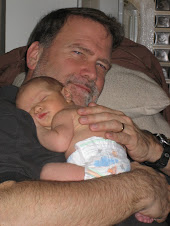Kinnaman and Lyons love Jesus, and they want the church to do better. They are convinced from their experiences and from the data that, on the whole, the church has portrayed wrong messages to the culture, messages that Busters and Mosaics (the generations behind the Boomers) have believed about evangelicals to the point that the large majority have no interest in what we say.
The authors isolate 6 major beliefs about the church that need changing. After introducing their concerns and general findings, they use these six concepts as the meat of the book's analysis--both what is wrong, and what needs to change. The six messages that need changing are:
1. The church is hypocritical--we say one thing and do another. Outsiders are "skeptical of our morally superior attitudes...conveying a polished image that is not accurate (29)."
2. The church is too focused on getting converts. People are targets for evangelism, but not valued otherwise.
3. The church is antihomosexual. Christians are "bigoted and show disdain for gays and lesbians (29)."
4. The church has been too sheltered from the larger culture, leaving us "old-fashioned, boring, and out of touch with reality," and we "do not respond to reality in appropriately complex ways, preferring simplistic solutions and answers (30)." Thus, we don't know how to respond to the messes in which people find themselves.
5. The church is too political. We are committed to a politically conservative agenda as right-wingers, identifying this agenda with our core values and message.
6. The church is judgmental, looking down on those who do not live as we believe, and not being honest about our attitudes. Outsiders doubt that we love people as we say we do.
In the early chapters where the methods and these six ideas are put forth, I found myself immediately "conflicted." I cannot deny that these six statements can be easily applied to various parts of the broad category of ministries that would be called "evangelical." I've encountered all six in my experiences, and am probably guilty of more than half of them at some time or another.
Is this new "news" however? Haven't professing followers of Jesus always been a bit of a mixed bag? Further, haven't those outside often misunderstood even the God-honoring characteristics of the church, let alone not understood our continuing failures on the road toward being like Jesus? As the authors presented anecdotal evidence that supported their findings, there were moments when I cringed, knowing that a Christian could in fact do what had just been related. But then I would think of other Christians who might have done much better in the same situation--and maybe actually had done better.
The survey data was strong, and it clearly revealed the negative attitudes toward evangelicals. Interestingly, it had slightly better numbers for those considered "born again." And the authors said that they did not define either of those categories, allowing the respondents to define them for themselves. So, those outside of the church were asked to use their own understanding of evangelicals and "born agains" in answering questions. I wonder where those concepts of who we are came from? Are they accurate? Might some people think negatively toward such "labels," but not necessarily apply it to a neighbor who is a real follower of Jesus and a very positive influence in their lives? I wonder.
I'm going to interact with the six ideas in future posts. I would suggest that the book is well worth reading, though. Maybe if you read it or have already done so, you might care to comment as we go along.





No comments:
Post a Comment